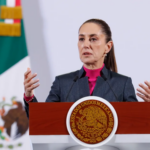
The response to the crisis came first from states, which seek to protect their regional economies before the impact of tariffs destabilizes the domestic market
While the federal government still evaluates the impacts of 50% tariff imposed by US President Donald Trump on Brazilian products, strategically affected states have already started acting on their own. At least four Federation units – Sao Paulo, Minas Gerais, Paraná and Rio Grande do Sul – announced emergency measures to contain the damage that the productive sector may suffer from the measure, which comes into force on August 6.
The coordinated reaction of state governments happens after the officialization, on Wednesday (30), of the American decree establishing additional fare on Brazilian products. Although the text foresees about 700 exceptions – including aeronautical pieces, vehicles, fertilizers and ores – strategic sectors for Brazil were left out of the list, such as coffee, beef, fruits, shoes and textiles.
Read too
Trump’s tariff becomes Haddad’s diplomatic battle
Sovereignty makes Lula trig
Oil War hits Indian bombs
Given this scenario, the states chose to release accumulated credits, facilitate access to financing and grant tax incentives to companies more exposed to the impact of the measure.
São Paulo releases R $ 1.5 billion in credits
The São Paulo government was the first to announce a robust package. On Wednesday (30), released the release of R $ 1.5 billion in accumulated ICMS credits and expanded the export line from R $ 200 million to R $ 400 million. The line will have subsidized interest from 0.27% per month + IPCA, with up to 60 months for payment and 12 months of grace.
Credits will be made available through the Proactive Program, with a limit of R $ 120 million per company. Orders will begin to be accepted in September, through Sipet of Sefaz-SP.
Minas Gerais and Paraná follow the example
In Minas Gerais, the package includes R $ 100 million in ICMS credits monetization and R $ 200 million in credit with interest reduced by the Minas Gerais Development Bank (BDMG), with a period of up to 60 months and a lack of 12 months.
In Paraná, the government authorized the release of ICMS credits for use such as approval or sale in the market and foresees up to R $ 400 million in financing. The lines will be operated by Fomento Paraná and BRDE, with possible contribution to the Economic Development Fund. In addition, the state suspended counterpart requirements for companies that received tax incentives.
Rio Grande do Sul launches line with subsidized interest
Rio Grande do Sul has created a line of R $ 100 million with subsidized interest (between 8% and 9% per year) via BRDE, with funds from the Fund drives South. The grace period will be 12 months and the total period of 60 months. According to the government, the focus is to give immediate breath to companies in sectors with high exposure, such as metallurgy, wood and machines.
Other states also prepare
Other states are also studying measures to minimize impacts. In Ceará, where the US represent more than half of state exports, the government internally discusses the release of ICMS credits and pressures union compensations provided for in Kandir Law. Governor Elmano de Freitas met with Vice President Geraldo Alckmin and called for emergency support from the sector of fish, nuts and Carnaúba wax.
Espírito Santo has not yet announced exact values, but Deputy Governor Ricardo Ferraço has already started meetings with the hardest affected sectors, such as coffee, ornamental rocks and cellulose. The focus, he said, is to ensure emergency support and later market redirect.
Rio de Janeiro creates working group
In Rio de Janeiro, a working group was created to map the impacts of the fare on sectors such as refined oil, steel and semi -finished. Governor Claudio Castro promised a technical and coordinated response after the completion of the diagnoses.
In Pará, the government coordinates an articulation with representatives of industry, commerce, mining and agriculture to evaluate the possible impacts of tariffs on sectors such as aluminum, iron and wood. According to management, although the US represents only 3.6% of Pará exports, the local government adopts a preventive and technical stance, also monitoring the effects on imports.
Amazon and Northeast also mobilize
In Amazonas, government technicians assess that the impact on the Manaus Free Zone will be minimal: only 0.15% of industrial pole revenues would be subject to new tariffs. Nevertheless, the state maintains constant monitoring, especially on any indirect effects, such as the increase of imported inputs.
In Sergipe, the state government has created a working group to evaluate the impacts of tariffs on local economic sectors. The goal is to collect detailed data, map the practical effects in each segment and joint, with the federal government, support measures to the most affected.
Pressure per federal plan increases
State and industry representatives want the federal government to assume the coordination of the Brazilian response. During a meeting of the Governors’ Forum with Vice President Alckmin, the governors proposed to create a commission to monitor negotiations and impacts.
The National Confederation of Industry (CNI), in turn, delivered a plan with eight emergency proposals, such as BNDES credit line with interest between 1% and 4% per year, postponement of federal taxes and reactivation of the unemployment insurance program.
Asked about the risk of mass layoffs and the delivery of the plan, Alckmin stated that the document is ready, but needs to go through President Lula’s endorsement. “Focus to preserve jobs and production. No one will be helpless,” explained the vice president in an interview with Ana Maria Braga on Thursday (31).
Federal Government Recalibra Plan
Even without announcing concrete actions, the federal government states that a contingency plan has been in preparation since last week. According to Vice President Alckmin, the package is “quite complete,” but depends on the evolution of negotiations with the US.
On Thursday, Alckmin stated in an interview with Mais Você, by Ana Maria Braga, that 36% of exports will be affected by the tariff and that negotiations with the US did not end.
With the publication of the list of exceptions, the Federal Plan should be recalibrated. According to information from the Gerson Camarotti blog, the package should prioritize sectors that could not escape the tariff and condition support for job maintenance.
Meanwhile, states follow in the front, trying to minimize the impacts of a measure that, even with exceptions, can profoundly affect the Brazilian economy at a delicate moment of diplomatic relations between the two countries.
The US Treasury Secretariat contacted the Brazilian Finance Ministry on Wednesday (30) to schedule a meeting and discuss the 50% tariff imposed by the Government of Donald Trump about Brazilian products. There is no date set for the meeting yet, but Minister Fernando Haddad has confirmed that negotiations will be resumed soon.
“Secretary Bessent’s staff made contact with us yesterday and will finally schedule a second conversation. The first, as I had advanced, was in May in California. There will now be a round of negotiations and we will bring to the US authorities our point of view,” Haddad said on Thursday (31).
The last meeting between the teams took place in May, before the announcement of additional tariffs. US Treasury Secretary Scott Bessent had met Haddad during a trip to California when commercial tensions had not yet cast.
Starting point negotiations
The minister stressed that, although Brazil is in a more favorable position than expected after the disclosure of the list of exceptions, there is still a long way to the negotiations.
“We are at a more favorable starting point than imagined. But far from the point of arrival. There is a lot of injustice in the measures that were announced yesterday,” said Haddad.
About 700 products were included in the exemption list, which means that approximately 43% of the total value of Brazilian exports to the US was left out of tariff. In the mineral sector, about 25% of products were affected by the measure.
Contingency plan will be released in the coming days
Despite the exceptions, Haddad acknowledged that the impact of tariffs is “dramatic” for some sectors of the Brazilian economy. The minister said that in the coming days the government will disclose specific measures to assist the most impaired companies.
“There are cases that are dramatic, which should be considered immediately. We will launch part of our plan expected to be launched in the coming days of support and protection to industry and jobs,” he said.
The help package should include credit lines and other measures to support affected companies. Haddad explained that, even relieved with the sectors that were spared, it is essential to protect those who remain vulnerable, especially the smaller and more fragile.
“There are sectors that, on the export agenda, are not significant, but the effect on them is very large. Sometimes the sector is small, but it is important for Brazil to keep jobs,” said the minister.
Even large sectors, which deal with commodities and have several consumer markets, will need time to adapt to change, Haddad said. “Obviously, there are affected sectors whose short -term solution is easier because it is a commodity that Brazil has many open markets, but even these will require some time of adaptation. You do not change a contract overnight. We have to analyze case and we will have the lines [de crédito] For that, ”he explained.
Judicial question will not be negotiated
Haddad reaffirmed that the attempt to interfere with Jair Bolsonaro’s trial by the Federal Supreme Court cannot be a negotiation subject, noting that the judiciary is an independent power of the executive.
“Perhaps Brazil is one of the broadest democracies in the world, contrary to the executive order [do Trump] makes you believe. We have to explain that the persecution of the Supreme Court Minister [Alexandre de Moraes] It is not the way of approximation between the two countries, ”said the minister.
The statement reinforces the position of the Brazilian government to maintain the defense of judicial sovereignty in the face of external pressures, even in the midst of commercial tensions with one of the country’s main economic partners.
With the reopening of negotiations, Brazil seeks to balance the defense of its economic interests with the maintenance of a diplomatic relationship that, according to experts, crosses one of the most delicate moments in its recent history.
With information from G1 and Agência Brasil*
Source: https://www.ocafezinho.com/2025/07/31/governadores-correm-para-ajudar-lula-a-conter-tarifaco-de-trump/

